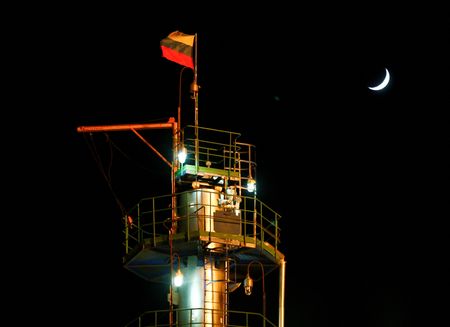BRUSSELS (Reuters) – The Group of Seven nations, Australia and the 27 European Union countries imposed on Dec. 5 a price cap on Russian crude oil transported by ships, aiming to reduce Moscow’s ability to finance its war in Ukraine and preserve stability on the global oil market.
The price cap comes on top of an EU embargo on buying seaborne Russian crude oil as a measure aimed mainly at providing third-party countries with an option to still buy it if the transaction is at or below the price cap level.
Below are the main elements of how the price cap is supposed to work:
PRICE CAP LEVEL
The price cap was set at $60 per barrel.
ADJUSTING THE PRICE CAP
The level will be reviewed every two months, starting in mid-January, to make sure it stays at least 5% below the average price for Russian crude as determined by the International Energy Agency. Each change in the cap will be unanimously agreed by all 27 countries of the European Union and then by the G7.
After each change of the cap there will be a 90-day grace period to make sure no ship is caught at sea with a cargo at a price that is no longer valid.
WHAT IS PROHIBITED
G7 and European Union insurance and reinsurance companies that provide services for tankers carrying Russian crude oil, as well as institutions financing Russian crude transactions, will not be allowed to handle such cargoes unless the oil is bought at or below the price cap.
Shipping companies will not be allowed to provide tankers for the transport of Russian crude unless the oil is sold at or below the $60 price cap.
WHAT IS ALLOWED
Providing financial and shipping services for Russian crude oil is allowed if it is bought at or below the price cap as well as in an emergency. Specific projects which are essential for the energy security of certain third-party countries may be exempted from the price cap.
ENTRY INTO FORCE
The price cap enters into force on Dec. 5, but there is a 45-day transition period allowing ships that were loaded before that date to carry their cargo and unload by Jan. 19 without any consequences.
PENALTIES
If a third party country-flagged vessel intentionally carries Russian oil above the price cap, EU operators will be prohibited from insuring, financing and servicing this vessel for 90 days after the cargo has been unloaded.
EU flagged vessels will be subject to penalties according to national legislation, but the EU is already working on a penalty of 5% of global turnover for companies that break EU sanctions.
(Reporting by Jan Strupczewski; Editing by David Holmes)





